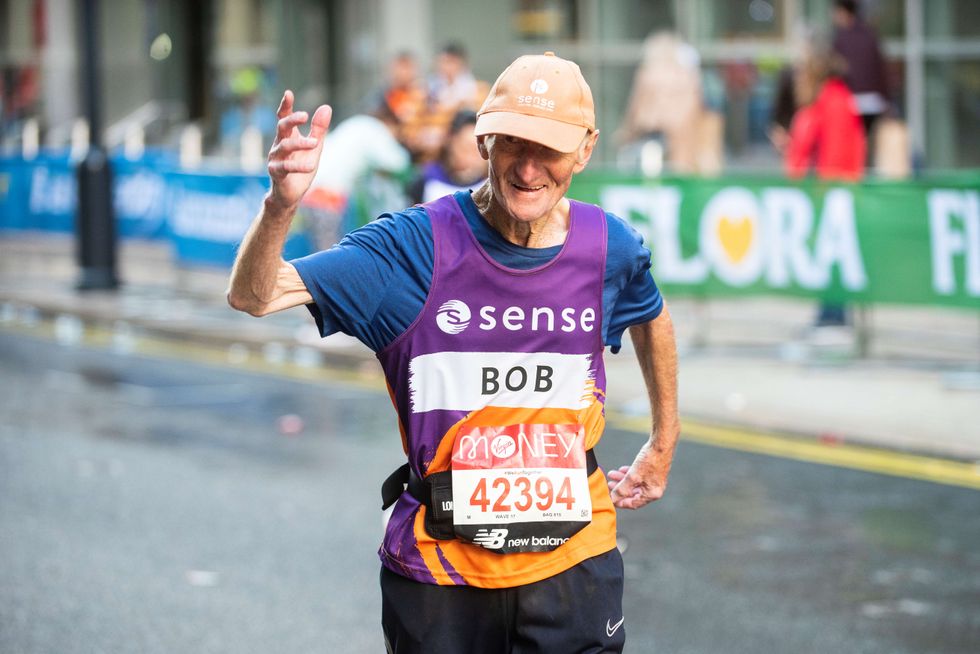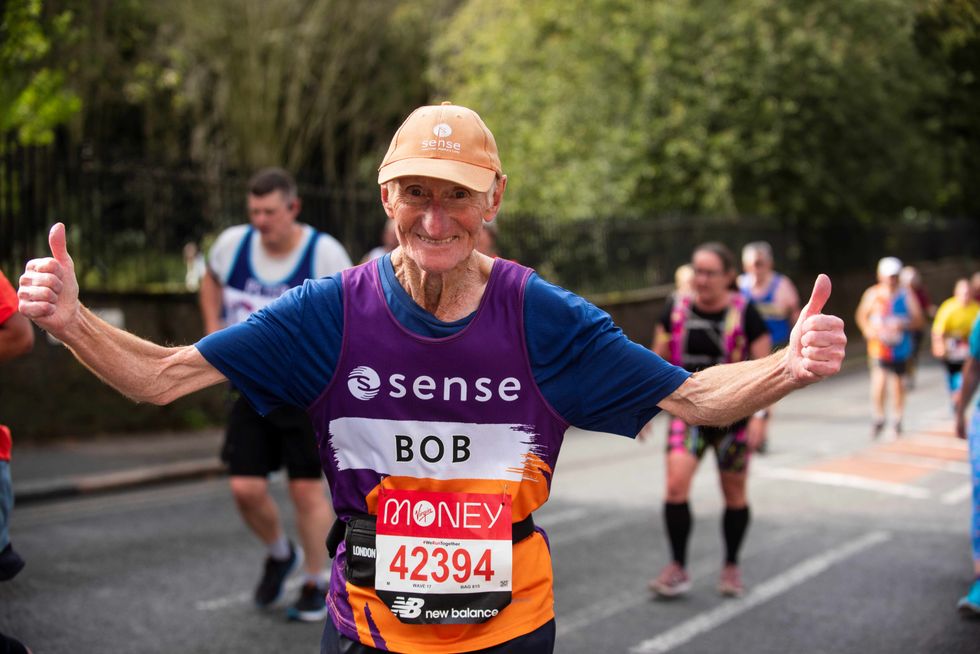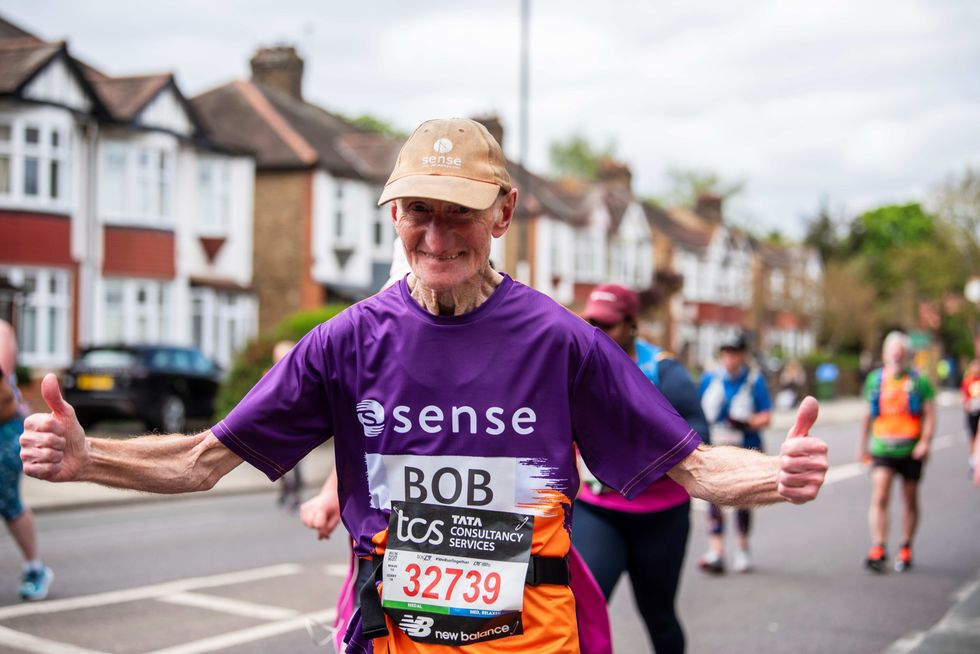News
Sarah Ping
Apr 19, 2025

Bob Smith, 80, will be running his 28th London Marathon (Sense/AP)
Sense
A grandfather hopes to encourage people that age is not a barrier when long-distance running ahead of his 28th London Marathon at the age of 80.
Bob Smith, a former headmaster from Upminster, went viral on TikTok last year aged 79 when he crossed the finish line at the London Marathon and hopes to complete the 26.2-mile run again this year all while raising money for Sense, a charity providing support for disabled people.
Mr Smith said he was roped in to run his first marathon in 1992 to support his colleague, a supply teacher at the primary school where he was headmaster, whose daughter was blind and deaf, to support Sense.
Since that first run, the former headmaster has not looked back having run the London marathon yearly since 1999 and has supported Sense every year since 2004 marking his 21st year running for the charity.

He hopes his run will help others to realise age should not be a barrier to keep fit and trying new exercises.
“One run will improve your day; several runs will improve your whole life,” he told the PA news agency.
“Don’t allow yourself to think that getting older means that you’ve got to get old.
“You are getting older, and everybody is, but you have to work with that and use the experience that you’ve gained over the years and keep yourself as fit as you can, and then some.”
Mr Smith said each run becomes more difficult every year, but said it does not deter him from running.

“It feels a little bit more difficult, but you’re a year older, so you learn how to deal with it, learn how to incorporate it into your training, which is very important, I think, always remain positive,” he said.
The former headmaster began long distance running when he was in college and joked “long before there were designer tracksuits”, but said drinking lots of coffee and training every day is key to maintaining his fitness as an octogenarian.
“Keep drinking plenty of cappuccinos. That’s the important thing,” he advised.
“I go out every day because, obviously, at 80 if you stop, it will be more difficult to start again.
“From the point of view of mental health and not wanting to allow my brain to slow down, it’s very important. It’s all part of the life choice.”
He said training for the next marathon begins the day after the event, once he has been for a massage to loosen his muscles and drunk a large cup of cappuccino.
He added that “variety is so important” as he takes part in a range of workouts including early runs starting at 5.30am, running on an incline for improved lung capacity and short bursts of running to build stamina.
Mr Smith said he motivates himself to complete the marathon by reminding himself about why he runs for Sense.
“Thinking about the visits I’ve made to the Sense training centres, and knowing that the pain barriers that you’re going through are actually helping youngsters there, that’s a very important motivation,” he explained.
He said the marathon spectators across the capital are often surprised by his age, but added their cheering helps get him through the challenging parts of his run.
“You have your name printed on your vest, and if somebody calls out, ‘Come on, Bob’, it’s a great boost and keeps you going over the painful miles,” he said.
Mr Smith expects to take around six hours and 30 minutes to complete the run and joked “the difference between my fast walking and slow running is not very great”.
“I set a pace that I know I can manage,” he added.
He credits running for maintaining his mental health and has urged older people to be more fearless about exercise.
“Don’t be afraid. Don’t set your goals or set your sights on the people who are the top athletes, the professionals. Work within your own capabilities and then just gently push the boundaries out,” he said.
“Try to do something every day and actually think about it, because the thinking about it is important for mental health.”
Top 100
The Conversation (0)













